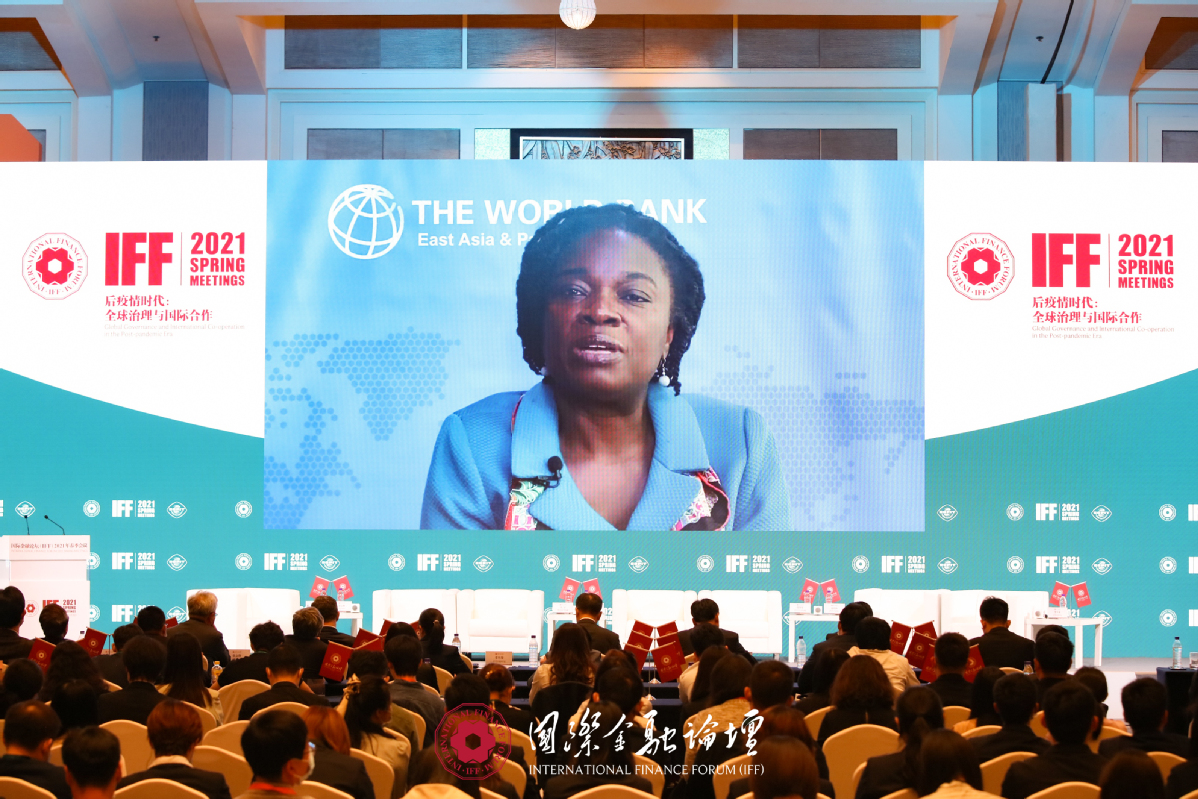
The World Bank Group has found opportunities to further strengthen the partnership with China in the climate change and green development agenda, in line with the nation's carbon neutrality target by 2060, according to a senior official from the bank.
The bank's partnership with China now is increasingly focused on greening the country's economy and providing global public goods, Victoria Kwakwa, World Bank regional vice-president for East Asia and the Pacific, said at the International Finance Forum (IFF) 2021 Spring Meetings held in Beijing over the weekend.
"We are directly supporting China's decarbonization efforts," said Kwakwa. "China could lead by example in decarbonizing its economy and expanding green development."
The World Bank is starting to work with the Development Research Center (DRC) of the State Council on a so-called Green China Flagship study, to identify evidence-based policy options to accelerate China's transition to a sustainable, carbon neutral and more resource-efficient economy, according to the vice-president.
Together with China's Ministry of Finance, the bank has also established a new green and low-carbon investment fund, which will catalyze private capital into private green businesses and projects, anchored on the application of international green and standards of environmental, social and governance (ESG).
In addition, the World Bank's program in the Yellow River Basin will support ecosystem restoration and nature-based solutions to climate change mitigation. Its cities programs will promote low-carbon mobility, planning and financing solutions, and the green agriculture and rural revitalization program will target greenhouse gas (GHG) emission reduction in the agriculture sector and support climate smart agriculture practices, Kwakwa said.
Research from the World Bank indicated that the consequences of climate change and pandemics are severe and irreversible, and developing countries will continue to bear the brunt. It estimates that an additional 130 million people could be pushed into extreme poverty by 2030 as a result of the effects of a warming climate.
The global pandemic has already pushed over 100 million people into extreme poverty in 2020 and worsened inequality, according to the World Bank's research.
Kwakwa called for a "whole of economy" approach to deliver growth and climate goals and embed climate priorities in country macroeconomic frameworks and financial sector regulations. Significant reforms of fiscal systems will also be needed to mobilize domestic resources in a way that promotes inclusiveness. And public-private partnerships, key upstream policy reforms and innovative financing can help spur private investment.
